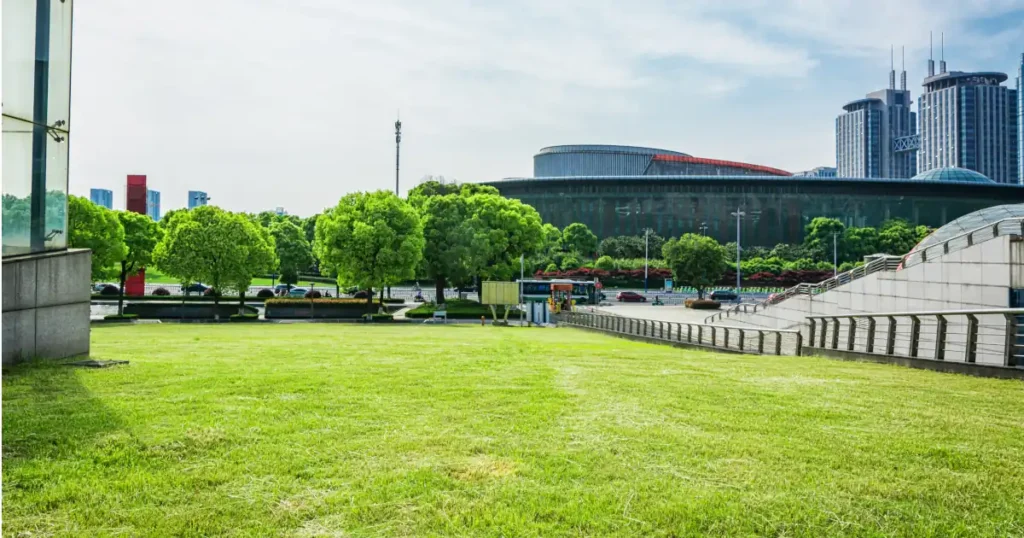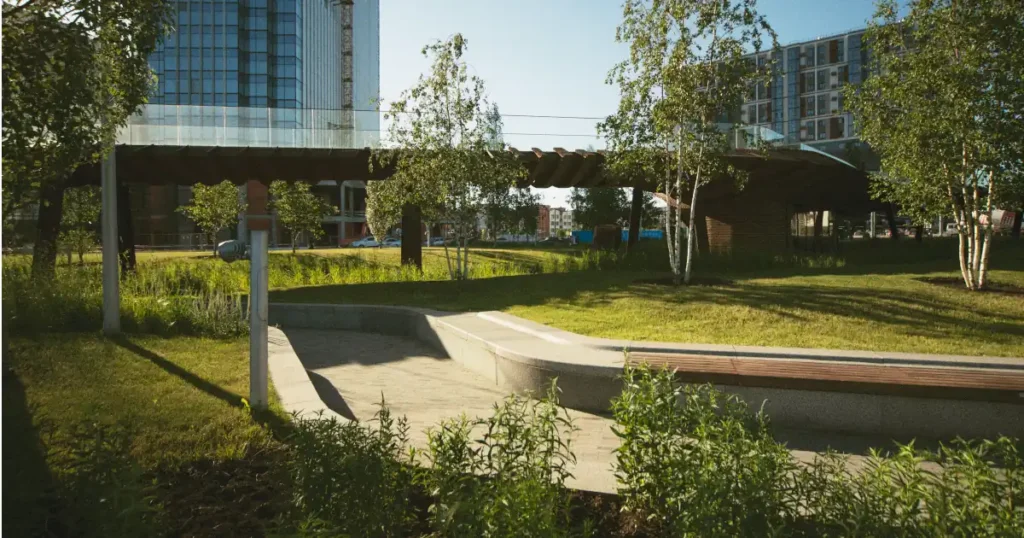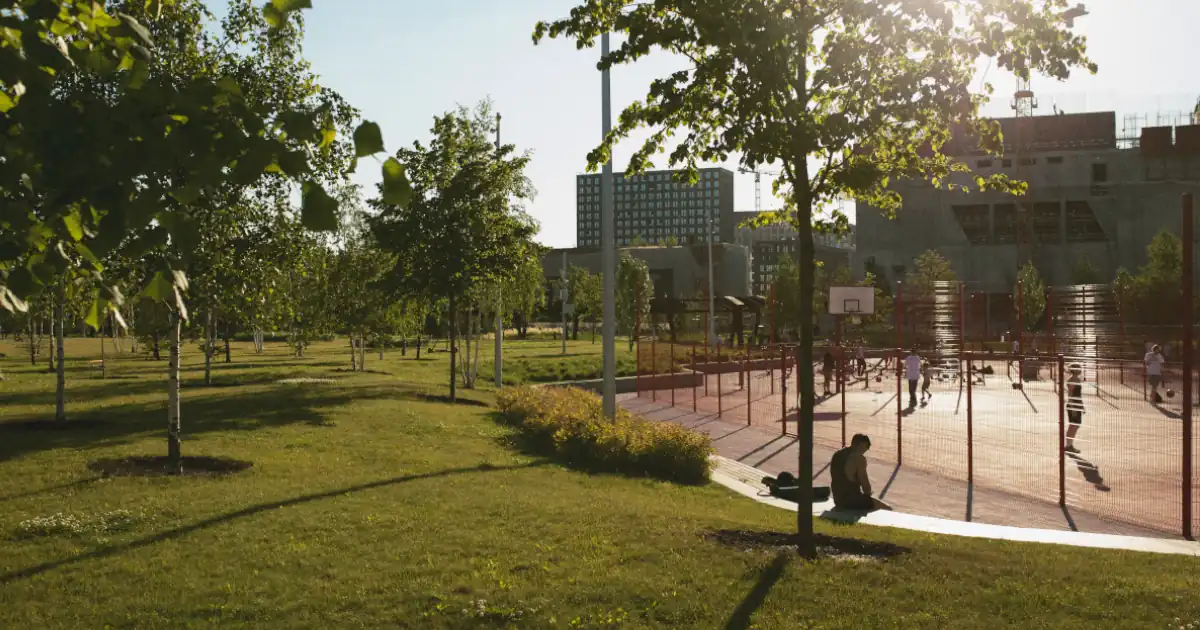Introduction
In today’s rapidly evolving business world, business parks have become essential hubs for innovation, collaboration, and productivity. These specially designed spaces cater to a wide array of industries, from tech startups to established corporations, providing a range of services and amenities tailored to their needs. Whether you’re looking to expand your business or just starting, business parks offer a strategic environment for growth and success. This article will explore the critical aspects of business parks, including their benefits, types, and how they contribute to the economy. Let’s dive in to understand why business parks are an integral part of modern business development.
What is a Business Park?
A business park is a dedicated area that accommodates multiple businesses, typically offering office spaces and industrial facilities. Unlike traditional office buildings, business parks are purposefully designed to provide specialized infrastructure such as high-speed internet, parking facilities, security, and more. Over the years, business parks have evolved from basic industrial zones to vibrant communities that cater to a variety of industries, including technology, manufacturing, and research. With the rise of modern businesses, business parks have adapted to offer flexible spaces that foster creativity, collaboration, and growth.
Benefits of Business Parks
One of the most significant benefits of business parks is the sense of community they provide. These parks offer opportunities for businesses to collaborate, share resources, and grow together. Additionally, business parks provide easy access to essential services and infrastructure, which can lower operational costs. Many business parks also boast prime locations, offering proximity to transportation hubs, which is invaluable for companies that require global reach. These features make business parks an attractive choice for businesses aiming to scale while staying efficient and competitive.
Advantages of Business Parks for Startups
For startups, business parks offer numerous advantages that can significantly boost their growth. One of the most notable benefits is the networking opportunities that arise from being surrounded by other businesses. This proximity often leads to collaborations, partnerships, and even investment opportunities. Additionally, business parks provide flexible office spaces, which are particularly beneficial for startups looking to scale at their own pace. The shared resources and cost-effective solutions also make it easier for small businesses to access the latest technologies without the hefty price tag. By being in a business park, startups gain access to established infrastructure, which can save time and costs on things like IT services, meeting rooms, and office supplies.
Types of Business Parks
There are several types of business parks, each catering to specific needs. For instance, technology parks focus on tech-driven companies and often feature state-of-the-art facilities like high-speed internet and digital infrastructure. Industrial parks, on the other hand, are designed for manufacturing businesses and typically offer larger spaces for production. Research and development (R&D) parks provide an environment tailored for innovation, with advanced facilities for experimentation and development. Mixed-use business parks combine these various elements, offering flexibility for companies in different stages of growth.
Key Features of Business Parks
The key features of business parks are what set them apart from traditional office spaces. Many business parks offer a variety of office layouts, from shared coworking spaces to private offices. They also provide essential amenities, including conference rooms, fitness centers, cafes, and lounges, to enhance employee satisfaction. Moreover, the strategic location of business parks often means businesses can access critical services like financial institutions, transport links, and retail shops. With these features, business parks are designed to meet the dynamic needs of businesses in the modern economy.
Business Parks and Economic Growth
Business parks are critical drivers of economic growth in many regions. They contribute to the local economy by providing employment opportunities and generating revenue from businesses that rent office or industrial spaces. Moreover, business parks are instrumental in attracting investment, especially in tech, manufacturing, and research sectors. The development of successful business parks can lead to economic revitalization, as they often become central to the local business ecosystem, drawing talent, resources, and international attention to the area.
Challenges Faced by Business Parks
Despite their many advantages, business parks face challenges such as rising competition. As demand for office space grows, newer business parks are often being built to meet the needs of modern businessesFurthermore, environmental issues and sustainability are growing in significance.Business parks must balance growth with eco-friendly practices, such as waste reduction, energy efficiency, and green building certifications. Lastly, they must continuously adapt to technological advancements to stay relevant and provide businesses with the tools they need to succeed.
Future of Business Parks
The future of business parks is poised for significant transformation. With the rise of remote and hybrid working models, many business parks are shifting towards more flexible spaces that can accommodate diverse work styles. Furthermore, technological advancements, such as the integration of smart building technologies, are enhancing the functionality of these spaces. Business parks will increasingly embrace sustainability, incorporating renewable energy sources, green spaces, and eco-friendly designs. As businesses continue to evolve, business parks will remain a crucial part of the business landscape.
How to Choose the Right Workspace for Your Company
When selecting the right workspace for your company, several factors should be considered. Location is paramount — choosing a space near key transportation links or within a vibrant business district can offer advantages for both logistics and networking. You should also assess the available amenities, such as meeting rooms, parking, and security services. Flexibility in lease terms and the option for scalable office space are important considerations, especially for growing businesses. Ultimately, choosing the right workspace should align with your company’s long-term growth strategy.

The Role of Technology in Modern Workspaces
In today’s digital era, technology has dramatically transformed the way businesses operate. Modern workspaces are equipped with advanced technological infrastructure, ensuring seamless communication and collaboration. From high-speed internet to smart office solutions, the integration of cutting-edge tools is essential for success. These advancements boost operational efficiency and foster an environment conducive to innovation and creativity. Businesses in these settings benefit from enhanced connectivity, making them more competitive in the global market. Technology also supports remote work solutions, offering flexibility to employees.
Sustainability in Modern Work Environments
Sustainability is becoming increasingly crucial in modern work environments. Many businesses are adopting eco-friendly practices to reduce their carbon footprint. Features such as energy-efficient buildings, solar panels, and recycling initiatives are now commonplace. These spaces are designed with sustainable materials and energy-efficient systems that not only help the environment but also reduce operational costs. The integration of green technologies allows businesses to align with their corporate responsibility goals while boosting employee satisfaction. In addition, offering eco-friendly alternatives to clients and consumers enhances a company’s reputation.
Collaboration and Networking Opportunities
A key advantage of working in modern spaces is the vast opportunity for networking and collaboration. These environments foster a sense of community by bringing together diverse companies from various industries. Many spaces offer collaborative areas, shared resources, and frequent events, where businesses can connect and share ideas. This allows for interdisciplinary collaboration, which can lead to innovative projects and partnerships. Moreover, the centralized location of these spaces attracts a wide range of professionals, encouraging meaningful relationships and fostering business growth.
The Role in Urban Development
Work environments are playing an essential role in the growth of cities and regions. As urban areas expand, dedicated workspaces contribute significantly to the overall development by transforming underutilized land into thriving business hubs. This relocation of businesses from crowded city centers to more spacious and organized locations reduces congestion and enhances the quality of life. By offering accessibility and providing job opportunities, these spaces help stimulate the local economy, supporting long-term economic planning and sustainable urban growth.
Work-Life Balance and Employee Well-being
In today’s fast-paced world, finding a healthy balance between professional and personal life is essential. Modern workspaces are incorporating various features to enhance employee health and overall satisfaction, such as fitness facilities, quiet areas for relaxation, and on-site childcare options. These thoughtful additions boost morale and contribute to improved productivity. When employees have access to such resources, they feel more valued, which leads to increased engagement and a reduction in turnover rates. A workplace that supports both physical and mental health fosters a positive atmosphere, benefiting employees and the organization as a whole.
Attracting Global Enterprises
Workspaces have become hubs for international businesses looking to expand their operations. With their strategic locations, modern facilities, and supportive infrastructure, they offer an attractive environment for companies across the globe. Many of these spaces provide incentives, such as tax breaks or streamlined regulatory processes, to help international companies establish themselves. The presence of multinational corporations adds to the appeal, creating an environment rich in diversity and opportunity. The global reach of these spaces facilitates cross-border trade and communication.
Flexibility for Growing Companies
Flexibility is essential for businesses at various stages of growth. Modern commercial spaces offer scalable leasing options, enabling companies to start small and expand as necessary. This flexibility is particularly valuable for startups, which need to keep costs low in their initial years. These environments also allow for easy expansion, offering larger offices or specialized areas as needed for different departments. The adaptability of such spaces ensures they are suitable for both small teams and large enterprises, promoting growth while avoiding the risks of overcommitment.
Accessibility and Connectivity
The success of a workspace often depends on its accessibility and connectivity. Being located near major transportation hubs like highways, airports, and public transit systems ensures that employees and clients can travel easily. Ample parking space, bike lanes, and pedestrian-friendly routes further enhance convenience. Having easy access to logistics and transportation networks allows businesses to operate efficiently and expand their reach. Additionally, excellent connectivity helps employees stay productive by offering access to advanced digital tools and global markets.
Conclusion
In conclusion, business parks play an essential role in modern business development. They offer a wide range of benefits, including cost-efficiency, access to vital resources, and opportunities for collaboration. As companies continue to seek flexible and innovative environments to thrive, business parks will remain central to business growth and success. Whether you’re a startup or an established company, selecting the right business park can provide your business with the infrastructure and opportunities it needs to reach its full potential.

faqs
What is a typical benefit of working in modern workspaces?
Modern workspaces offer flexibility, convenience, and a collaborative environment that fosters growth and innovation. These environments are designed to help businesses thrive, with amenities that improve employee productivity and overall business efficiency.
How can a workspace contribute to business growth?
A well-designed workspace provides essential infrastructure, networking opportunities, and proximity to other businesses, all of which can enhance business development. These spaces often feature flexible office layouts, making them ideal for companies at different stages of growth.
Are these environments suitable for startups?
Yes, these environments are especially advantageous for startups due to their affordability, flexible terms, and access to shared resources like high-speed internet, meeting rooms, and other essential services. This helps startups minimize overhead costs while growing their business.
What should businesses look for when choosing a location?
When selecting a location, businesses should prioritize factors like accessibility, available amenities, proximity to transportation hubs, and scalability. Additionally, the location should align with the company’s long-term growth strategy and vision.
What challenges are associated with these spaces?
While they offer many benefits, these spaces face challenges such as rising competition, the need for sustainability, and adapting to technological advancements. These factors must be carefully managed to ensure long-term success.
How is technology integrated into modern workspaces?
Modern workspaces increasingly integrate smart building technologies to improve energy efficiency, security, and communication. These technological advancements create more efficient and comfortable environments for businesses and their employees.
Read More:

